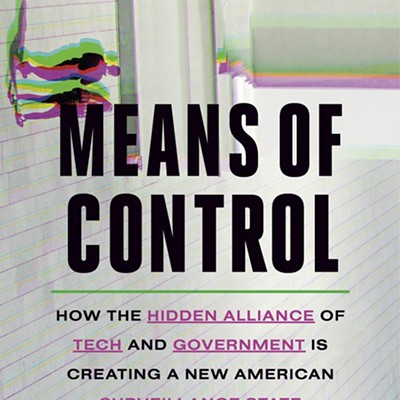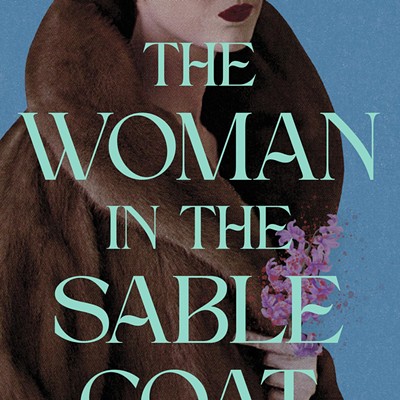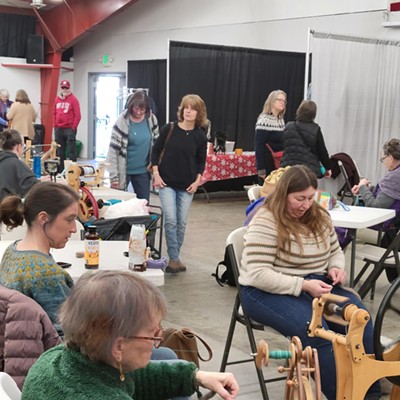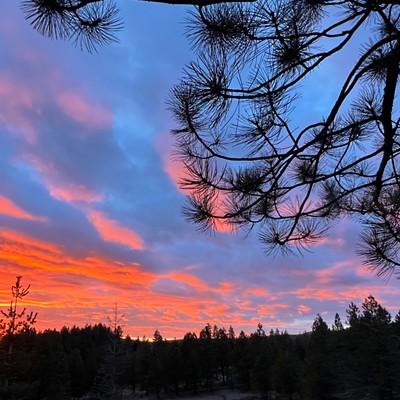It was 1997 when Camilla Carr and Jonathan James moved to Chechnya to set up a center for war-traumatized children. Two months after their arrival, they were kidnapped and held captive for more than 14 months by Chechen rebels.
They share the story of their survival Tuesday in Moscow as part of the University of Idaho’s Martin Forum series.
While in captivity, the couple experienced mental torture, threats and rape. Using tools like Tai Chi, meditation and dialogue, they were able to survive, not only physically but psychologically. Carr and James speak internationally about their experience and wrote about it in their book, “The Sky Is Always There.”
Inland 360 spoke with Carr via email to find out more about their experience and perspective:
Inland 360: What tools did you have going into the experience of being kidnapped that helped you cope? What tools did you develop or discover along the way?
Carr: We were very lucky that both of us had learnt Yoga, Tai Chi and different types of meditation during the years before we were kidnapped, and using these different techniques and disciplines certainly helped us remain sane and as healthy as we could during the 14 months and three weeks of captivity. During captivity we developed our tools of visualization and of building rapport with people from very different backgrounds and belief systems from our own. Not to the point of taking on their belief systems but to enable them to see that we were human beings, not just commodities to be exchanged for money. We also developed our creative skills to customize wherever we were held, to help us cope with the conditions.
Inland 360: Tell us a little about your and Jon’s process in healing from this event. Do you feel “normal” now? What have been some of the tools or dynamics that have contributed to your healing?
Carr: When we first got out, there was a sense of euphoria; seeing our families and friends again was stupendous. But as the days rolled by, we realized all our batteries had been used up. I had to stay in bed for about a month, no energy, a lot of tears and anger. For Jon it happened a bit later, a lot of exhaustion. Luckily we had done a deal with a newspaper for our story, which gave us money to live on for a while without working.
Jon found doing building projects and being outside helped him. We saw a couple of psychiatrists, but they couldn’t really help us. There was a lack of empathy. We found having body work, such as cranial sacral therapy, acupuncture and healing massage helped to release the trauma gently without having to analyze it. Finding someone with empathy to talk to was very important. I was very lucky because I can talk to my mother about anything. Jon saw a psychotherapist. I began writing about our experience, which was very cathartic. Eventually Jon became involved, and we published a book called “The Sky is Always There.”
Fortunately neither of us suffered from flashbacks and nightmares. Probably all our practices helped that not to happen. I think we thought eventually we would be able to completely heal from the experience, but as a healer said to me, “it is like a war wound; it is part of you; it will never disappear completely.” Occasionally we get triggers that can make our hearts race or hard to breathe. It could be music or smells or people arguing aggressively or people disrespecting someone who has been sexually abused.
Inland 360: You’ve said that you don’t hold bitterness toward your kidnappers. How did that come to be?
Carr: We were lucky in having some sense of the history of our captors, so we knew their behavior was caused by war. War destroys minds as well as bodies. This didn’t mean that we ever condoned what they did to us, but it helped our relationship with them. We tried not to show anger towards them, we remained as passive as we could emotionally so they wouldn’t react more violently than they did. But it was like walking a tightrope: not getting too close so they would take advantage of us and not keeping too distant so we became like objects, not valued human beings. We can still feel angry about what they did to us but also not feel bitter and hate, which would destroy us not them.
Inland 360: You went to Chechnya even though you knew it was dangerous because there was good you wanted to do. What might you say to someone who is considering a similar journey to a needy, but unsafe location?
Carr: Consider very carefully your reasons for going into a high-risk environment. What will you achieve by doing so? Make sure you know all the dangers that you could face. We would recommend doing a hostile environment training where you learn about first aid, do role play to understand how you would react in certain situations and learn about risk assessment. Jon and I are guest speakers on many hostile environment trainings, teaching the clients about kidnap survival and the importance of mental attitude in that situation.
Inland 360: Much of your current work involves speaking to groups about your experience and providing tools to help people cope with stressful environments. What are some of the things you say or teach that most resonate with people in difficult situations?
Carr: We have had lots of positive feedback from our talks and workshops. First, it has helped people focus on their reasons for going into high-risk situations. For example, one female reporter who had been in many war zones began to realize the traumatic effects it was having on her and influencing her private life, so she changed her career path, still doing journalism but not in unsafe environments. For others it has been about seeking help after being sexually abused. For others, it’s about learning new tools to help them if a kidnap situation arises. For others, it’s about looking at their own interests such as poetry, writing and music and how those could help them cope and build up their resilience within a threatening situation.
IF YOU GO:
WHAT: “Surviving a Kidnapping in Chechnya,” a lecture by Camilla Carr and Jonathan James
WHEN: 6:30 p.m. Tuesday
WHERE: University of Idaho Vandal Ballroom, Bruce M. Pitman Center, University of Idaho campus, Moscow
COST: Free




















